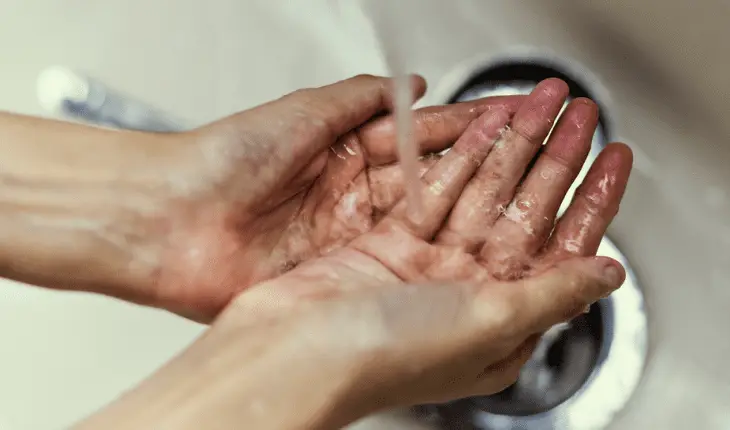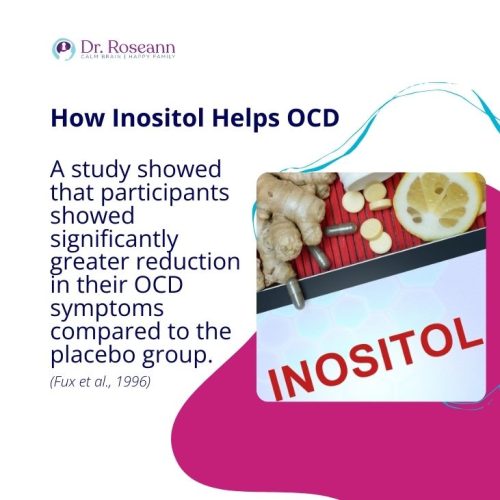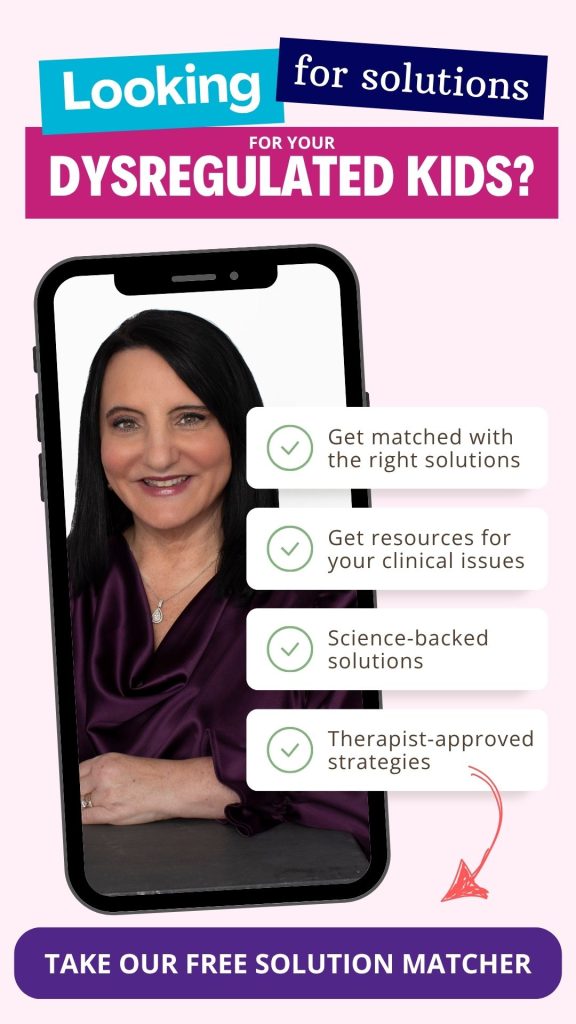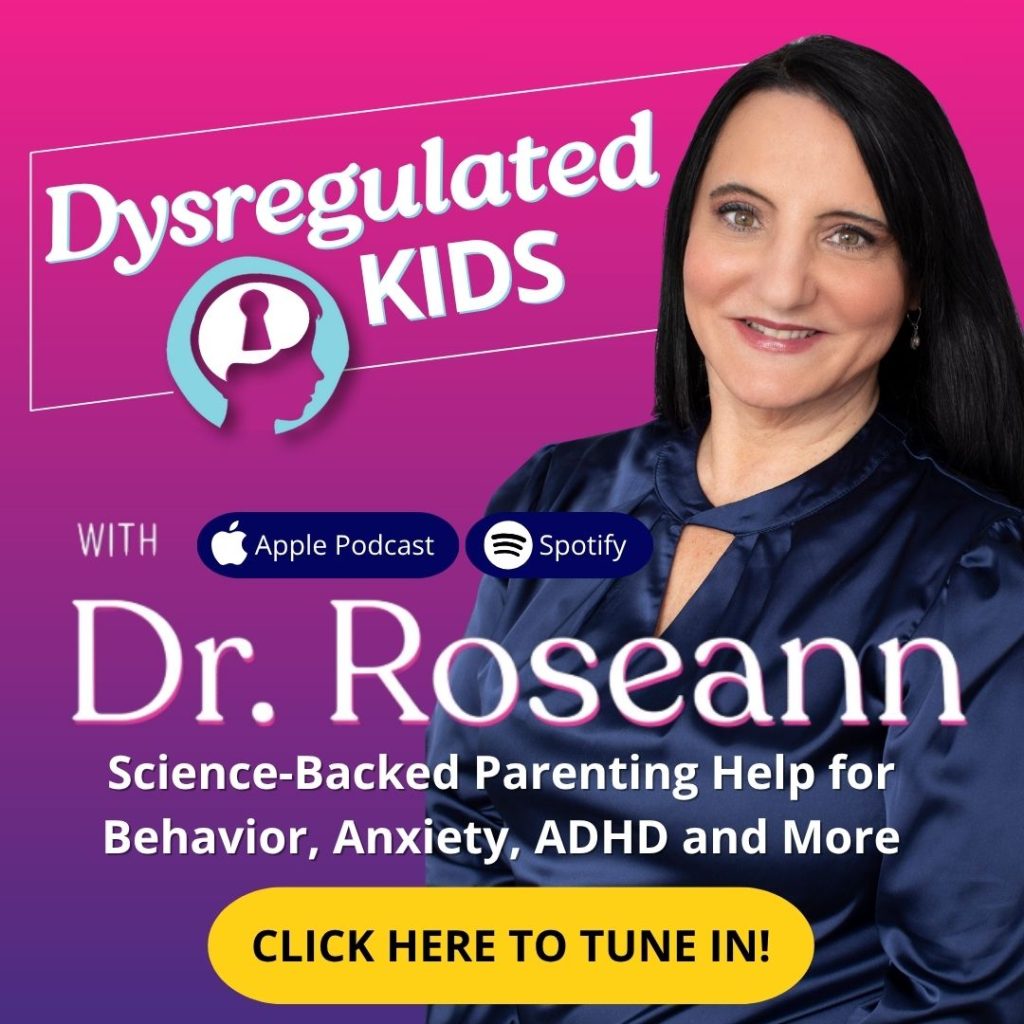
Estimated reading time: 10 minutes
If your child’s OCD is taking over with constant worries, rituals, and emotional storms, you’re not alone—and feeling drained doesn’t mean you’re doing anything wrong as a parent.
The good news is that natural, science-backed supplements for OCD can support your child’s brain and body in powerful ways—without the harsh side effects of medication.
What Is Obsessive-Compulsive Disorder (OCD)?
OCD affects about 2.3% of people in the U.S., and when it grabs hold of your child’s brain, it can feel like a stuck record—same fears, same rituals, over and over again.
Watching your child wrestle with that loop day after day is heartbreaking, and yes, it takes a toll on the whole family.
CBT and ERP are evidence-based approaches that have helped many children find relief, and for some, SSRIs can offer support too. But they aren’t the whole story. Some kids don’t respond the way we hope—or experience side effects that make things more complicated.
That’s why more parents are choosing to add brain-based supports, like supplements, into the mix.
No, they aren’t a magic fix—but the right ones can help calm the nervous system, reduce inflammation, support mood, and make it easier for the brain to regulate.
How Can Supplements for OCD Help?
When chosen carefully and used under professional guidance, supplements for OCD can:
- Reduce anxiety and intrusive thoughts
- Improve sleep and emotional regulation
- Support neurotransmitter function
- Lower inflammation and oxidative stress
Which Supplement is Best for OCD?
Natural remedies for OCD vary from supplements and essential oils to therapy, but the most effective approach combines calming the brain with Exposure and Response Prevention (ERP)—the gold standard treatment.
While supplements help address inflammation, neurotransmitter imbalances, and oxidative stress, therapy is essential to break OCD’s behavioral cycle.
Here are five supplements I often recommend that support holistic healing:
1. N-Acetylcysteine (NAC): The Compulsion Tamer
Curious how an amino acid could ease OCD symptoms? NAC plays a key role in regulating glutamate—a brain chemical closely tied to those intrusive thoughts and compulsions.
Beyond that, it’s a powerful antioxidant that helps calm brain inflammation, which often fuels symptom flare-ups (Lawrence, 2009).
Why NAC stands out among supplements for OCD (Afshar et al., 2021):
- Targets root causes of compulsions
- Lowers oxidative stress
- Supports better emotional regulation
How NAC works in the brain:
- Modulates genes involved in inflammation
- Reduces inflammation by blocking pro-inflammatory cytokines
- Calms the NF-kappa B signaling pathway, a key player in inflammation
- Regulates the COX-2 gene, linked to inflammation and pain
- Inhibits excitatory neurotransmitters that can fuel OCD symptoms (Pittenger et al., 2011)
NAC also helps balance the glutamatergic system, which often runs wild in OCD:
- Activates inhibitory glutamate receptors
- Lowers glutamate release at synapses
- Restores healthy glutamate levels in the nucleus accumbens, helping stop compulsive behaviors
Dosing tip: Clinical studies typically use 600 to 3000 mg/day. Start low, go slow, and always check in with your healthcare provider to find the safest, most effective dose.
2. Glycine: The Calming Amino Acid
This amino acid supports inhibitory neurotransmitters that ease overactive brain circuits, potentially reducing anxiety and obsessive thoughts.
Though research is still catching up, glycine’s calming effects show promise, especially when paired with other treatments. Dosages can vary widely, so consulting with a healthcare provider before starting is highly advisable.
Your body makes some glycine naturally, but you’ll also find it in:
- Collagen
- Gelatin
- Bone broth
- High-protein meats
It’s a multitasker, playing vital roles in:
- Nerve function
- Detoxification
- Cellular energy production
- Supporting collagen production, essential for muscles, skin, tendons, and bones (Razak et al., 2017)
- Aiding creatine synthesis, which fuels brain energy
- Inhibiting oxidative stress, protecting intestinal health (Wang, et al., 2014)
- Supporting detoxification by enabling bile salt synthesis, which helps remove toxins from the body and inhibits harmful bacterial overgrowth
Since a healthy gut affects brain function—and conditions like PANDAS/PANS tie infections to OCD symptoms—glycine’s gut and nervous system support feels especially important.
In the brain, glycine:
- Acts as an inhibitory neurotransmitter, working alongside GABA and taurine
- Modulates excitatory receptors like NMDA, balancing sedation and cognition
This dual action helps regulate mood and reduce compulsive behaviors, supporting its use as a natural supplement for OCD.
3. Milk Thistle: Detox and Inflammation Support

Did you know Milk Thistle not only supports liver health but also reduces inflammation, which is crucial for kids with neuroinflammatory OCD like PANS and PANDAS? Its key ingredient, silymarin, is a powerful antioxidant used for over 2,000 years to protect cells and promote detoxification.
Key functions:
- Boosts liver detox, especially phase 2 pathways
- Eases brain inflammation
- Aids mood regulation by increasing serotonin levels
Research shows Milk Thistle may reduce obsessions and compulsions in as little as four weeks (Sayyah et al., 2009), likely due to its combined effects on:
- Inflammation
- Detoxification
- Serotonin regulation
When detox slows, toxins build up and may worsen psychiatric symptoms, including OCD. For best results, opt for a quality extract standardized to 70-80% silymarin.
https://youtu.be/8U6TopScEaM?si=vwKqnqgLM42-STda%20
4. L-Theanine and Calming Neurotransmitters: Stress Relief Without Sedation
L-theanine is an amino acid found in green and black tea (Kimura et al., 2007), that may help reduce anxiety and aid in relaxation.
Some studies say it can help with intrusive thoughts, especially in the context of anxiety and OCD. However, it's important to consult with a healthcare professional before using L-theanine, especially if your child has any existing medical conditions or is taking medication.
Why parents love it as a supplement for OCD:
- Boosts calming alpha brain waves that soothe the mind
- Supports key neurotransmitters without causing drowsiness or affecting coordination: dopamine, serotonin, and GABA (Nathan et al., 2006)
- Non-sedating and safe for use during the day
- Typical dose ranges between 100 and 200 mg daily
- Reduces anxiety by blocking the excitatory neurotransmitter glutamate
- Helps the brain relax, easing OCD symptoms
- Protects brain cells from damage caused by stress and excitotoxicity, supporting cognitive health and reducing compulsive behaviors
Typical dose: 100 to 200 mg per day
5. Inositol: The Natural Serotonin Booster

Ever feel like you’re trying everything for your child’s OCD and still spinning your wheels? That's where inositol—a vitamin-like compound that supports serotonin activity without the side effects often seen with SSRIs—can step in.
It’s been shown to ease OCD symptoms in both kids and adults, and most people tolerate it really well, with only occasional mild bloating and no known drug interactions.
How Inositol Helps with OCD Symptoms:
- Lifts mood
- Calms obsessive thoughts
- Supports serotonin signaling
Dosage: Studies often use higher doses, up to 18 grams per day. It’s all about dialing in what works for your child, and that means working alongside a trusted provider who gets this kind of care.
Sometimes called Vitamin B8 (though not officially a B vitamin)—though it’s not officially a B vitamin—inositol naturally appears in lots of foods:
- Oranges
- Cantaloupe
- Bananas
- Wheat germ
- Brewer’s yeast
- Liver
- Brown rice
- Oat flakes
- Nuts
- Molasses
- Raisins
- Various vegetables
Vital functions of inositol:
- Supports crucial processes like cell formation, nerve signaling, and fat metabolism
- Influences key neurotransmitters to aid brain function: serotonin and GABA
- Enhances mental health by promoting relaxation and overall brain wellness
- Helps improve restful sleep quality
- Acts as a natural supplement for managing symptoms of OCD and anxiety
Research shows adults taking 18 grams daily had noticeable relief from OCD symptoms (Fux et al., 1996). Breaking up the doses through the day often works best—especially if you’re dealing with PANS or PANDAS.
As more people seek alternatives to medication, combining inositol with Exposure and Response Prevention (ERP) therapy offers a promising approach. Always consult with your healthcare provider before adding supplements to your OCD treatment plan.

What Does Research Say About Dosages of Herbs And Supplements?
Parents often ask, “What’s the best herb for OCD?” or “What works for intrusive thoughts or compulsions?”—but effective treatment usually involves more than just one supplement. Research supports using a combination of these five key supplements alongside holistic therapies like neurofeedback to help reduce symptoms and support long-term healing.
How Can I Reduce OCD Naturally?
Start with a full-body, brain-first approach—because OCD isn’t just in the mind, it’s in the nervous system too. Supplements can absolutely help, but they’re just one piece of the puzzle.
When you pair them with lifestyle shifts, calming therapies, and nervous system regulation, that’s when things really begin to change.
What are Other Key Supplements That May Help with OCD?
- Vitamin D: Essential for both immune function and brain health. When levels drop, mood issues like anxiety and depression often show up right alongside.
- Magnesium: Stress drains this calming mineral fast. It helps settle an overactive mind, eases tension, and may even quiet those intrusive OCD thoughts.
- Omega-3 Fatty Acids (Fish Oil): Helps reduce brain inflammation and calm neural overactivity; some research suggests fish oil may lessen OCD symptoms.
- Herbal Remedies and Key Vitamins: Can support neurotransmitter balance and reduce inflammation linked to stress.
What are Other Natural OCD Treatments?
- Neurofeedback: Helps the brain learn how to regulate itself—like a workout for focus, mood, and emotional control.
- CALM PEMF™ Therapy: Gently uses pulsed electromagnetic fields to soothe an overstimulated brain and calm the whole nervous system.
- Mindfulness Meditation and Yoga: Help lower cortisol, ease anxiety, and calm the body—critical for kids with OCD.
These tools work better together—quieting the brain and setting the stage for real healing. Pair them with daily habits that support nervous system health and you’ll help your child’s brain focus, regulate, and thrive.
Build that foundation with:
- Anti-inflammatory, nutrient-rich meals
- Consistent sleep and movement routines
- Calming tools like breathwork, meditation, or neurofeedback
- Detox and gut support for full-body wellness
What Dietary Changes are Necessary for OCD?
Nutrition shapes how the brain works. Small changes can make a big difference:
- Skip processed foods, sugar, and caffeine—they can rev up anxiety and OCD symptoms
- Choose whole foods, leafy greens, berries, fish, and healthy fats
- Boost magnesium-rich foods or supplement if needed
- Try gluten- or dairy-free if certain foods trigger flares
Always work with a trusted provider to keep meals balanced and nourishing. When we calm the brain, kids can focus, regulate, and grow.
A Real-Life Example
"We started with magnesium and NAC for my son after months of exhausting trial-and-error with medications. Within weeks, he seemed calmer and less reactive. His therapist even noticed he was more engaged in sessions. These supplements didn’t replace therapy, but they helped him get more out of it." — Laura, mom to a 13-year-old with OCD
Supplements for OCD can be a powerful part of your child's healing journey. They support brain function, calm the nervous system, and help children respond better to therapy.
Every child is different, and finding the right mix takes time and guidance.
Remember—You’re not alone. There are tools and they work.
What are the Next Steps in Treating OCD?
If you’re concerned about your child’s behavior or OCD, you’re not alone—and you’ve come to the right place. Start with my blog post, “What is OCD?” to learn how signs in kids often get missed because they look like anxiety or typical childhood habits.
As an integrative mental health professional, I’ve seen many kids misdiagnosed, causing delays to getting proper treatment. Accurate diagnosis with tools like the Yale-Brown Obsessive Compulsive Scale (Y-BOCS) is the first step toward proper support.
Healing is possible. Let’s get to the root—so your child can thrive.
Natural treatments can ease OCD symptoms and empower children to “talk back” to their OCD, building resilience and emotional control along the way.
Parent Action Steps
Research supplements and consult with a healthcare provider to determine what’s appropriate. Use a checklist to weigh each supplement’s benefits and risks. Keep track of dosages and treatment length. Learn more about the BrainBehaviorReset™ Program.Take our Solution Matcher to get science-backed solutions to help your child today.

FAQs
How do supplements fit into OCD treatment for kids?
Supplements can support brain function and calm the nervous system but work best alongside therapy and lifestyle changes.
Can you treat OCD without medication?
Yes, many families successfully manage OCD without medication—especially when symptoms are caught early and the child receives proper support. Non-medication strategies include CBT with ERP, natural supplements, nervous system regulation, and lifestyle changes like diet and sleep.
Are there any risks or side effects with OCD supplements?
Most supplements are well tolerated, though mild side effects like bloating may occur. Always consult a healthcare provider before starting.
How long does it take for supplements to show results in managing OCD?
It varies by child and supplement, but many families notice improvements within weeks when combined with therapy and lifestyle changes.
Citations
Fux, M., Levine, J., Aviv, A., & Belmaker, R. H. (1996). Inositol treatment of obsessive-compulsive disorder. The American journal of psychiatry, 153(9), 1219–1221. https://doi.org/10.1176/ajp.153.9.1219
Kimura, K., Ozeki, M., Juneja, L. R., & Ohira, H. (2007). L-Theanine reduces psychological and physiological stress responses. Biological psychology, 74(1), 39–45. https://doi.org/10.1016/j.biopsycho.2006.06.006
Lawrence T. (2009). The nuclear factor NF-kappaB pathway in inflammation. Cold Spring Harbor perspectives in biology, 1(6), a001651. https://doi.org/10.1101/cshperspect.a001651
Nathan, P. J., Lu, K., Gray, M., & Oliver, C. (2006). The neuropharmacology of L-theanine(N-ethyl-L-glutamine): a possible neuroprotective and cognitive enhancing agent. Journal of herbal pharmacotherapy, 6(2), 21–30.
Pittenger, C., Bloch, M. H., & Williams, K. (2011). Glutamate abnormalities in obsessive compulsive disorder: neurobiology, pathophysiology, and treatment. Pharmacology & therapeutics, 132(3), 314–332. https://doi.org/10.1016/j.pharmthera.2011.09.006
Razak, M. A., Begum, P. S., Viswanath, B., & Rajagopal, S. (2017). Multifarious Beneficial Effect of Nonessential Amino Acid, Glycine: A Review. Oxidative medicine and cellular longevity, 2017, 1716701. https://doi.org/10.1155/2017/1716701
Sayyah, M., Boostani, H., Pakseresht, S., & Malaieri, A. (2009). Efficacy of aqueous extract of Echium amoenum in treatment of obsessive-compulsive disorder. Progress in neuro-psychopharmacology & biological psychiatry, 33(8), 1513–1516. https://doi.org/10.1016/j.pnpbp.2009.08.021
Wang, W., Wu, Z., Lin, G., Hu, S., Wang, B., Dai, Z., & Wu, G. (2014). Glycine stimulates protein synthesis and inhibits oxidative stress in pig small intestinal epithelial cells. The Journal of nutrition, 144(10), 1540–1548. https://doi.org/10.3945/jn.114.194001
Always remember... “Calm Brain, Happy Family™”
Disclaimer: This article is not intended to give health advice and it is recommended to consult with a physician before beginning any new wellness regime. *The effectiveness of diagnosis and treatment vary by patient and condition. Dr. Roseann Capanna-Hodge, LLC does not guarantee certain results.
Are you looking for SOLUTIONS for your struggling child or teen?
Dr. Roseann and her team are all about science-backed solutions, so you are in the right place!


%20.png)
















